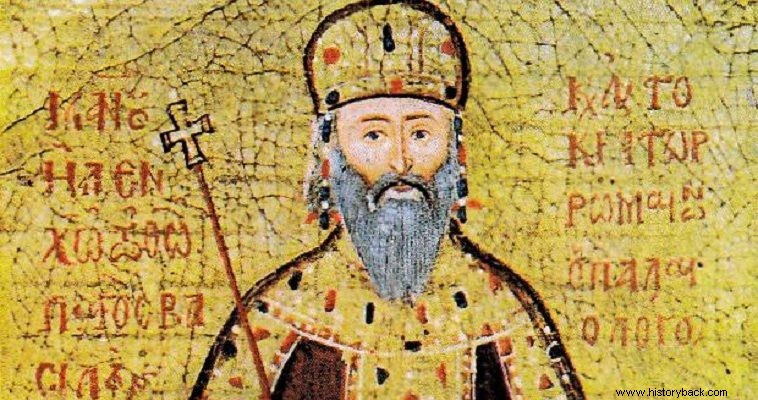
Manuel Palaiologos was born in 1350, when the empire was already collapsing. The two civil wars that preceded Andronikos II and Andronikos III, and even worse, between his father John Palaiologos and John Kantakouzenos, had removed the last vestige of life from the dying empire.
Especially, the second war resulted in the definitive destruction of the army, the passage of the Turks to Europe and the descent of the Serbs as far as Phocis. Manuel received an excellent education , next to the great, Dimitrios Kydonis. He was noble, honorable and patriot . He still believed that the state could be saved and fought with all his might for this purpose.
From a young age he was given the governance of the second most important city of the empire, Thessaloniki. There he showed his virtues. However, the incompetence of his father, the betrayal of his older brother, Andronikos IV and the terrible circumstances that surrounded him in his absence, did not allow him to utilize them to the extent that would allow the transformation of the situation to the best. In 1384 he was again the commander of Macedonia and had as his opponent the sultan, Murat.
The Turks threshed, literally, in the Greek lands, especially after the capture of Adrianople (1361). Manuel did not despair, however. After all, the other Balkans were still fighting the Turks. Manuel gathered some soldiers and moved against the Serres. He had arranged with the inhabitants to open the gates to him and slaughter the Turkish garrison.
But his plans leaked out and Murat turned against him with great forces. Manuel was not able to fight the thousands of Turks in an open field, as according to accounts of the time, he had only 100 regular soldiers – the rest who followed him were disorderly, armed citizens. Despite all this, he fought the Turks in the fortress of Hortiatis. He fought heroically, but was defeated and found refuge in Thessaloniki.
There, he resisted for 4 years. When the city surrendered, he, in order to prevent the citizens from suffering Turkish revenge, went alone to Murat, taking responsibility. Even the Turk appreciated his courage and, beyond all expectations, did not execute him. Shortly afterwards Murat was killed in the Battle of Kosovo and succeeded by his son, Bayezid. He was holding Manuel hostage.
Manuel managed to escape, however, in 1390, when he learned that his father, Emperor John, had died. He managed to reach the City and was anointed emperor. Bayezid then besieged the City, expecting to wreak it by the weapon of starvation. But he also used the traitor Ioannis Palaiologos, Manuel's nephew, to fulfill his plans. Manuel managed to fend off the Turks and also face the traitor, who was supported by Bayezid. His constant diplomatic actions finally brought some results.
But all hopes were dashed in Nicopolis, in 1396, when the crusader army was annihilated. In 1399, a small body of French arrived in the city, under the "protostator" Vousikos and around 1700 men. This body fought well, but in 1400, it was forced to leave, for lack of resources. Bousico urged Manuel to travel to Europe and ask for help. Indeed, Manuel toured the European capitals, but in vain.
But an opportunity presented itself with Tamerlane's invasion of Asia Minor. The Mongols routed the Turks and captured Bayezid. A civil war followed between the successors of Bayazit, in which Manuel also got involved, recovering Thessaloniki, many cities of the Propontis and parts of Macedonia and Thessaly.
Also, the emperor was interested in the Peloponnese. He himself went to the Peloponnese, saw to the construction of the wall of Hexamilion and the total destruction of the last Latin strongholds there.
He died in 1425, having tried too hard to reverse a situation he did not create. Fight with all their might, until the last moment. He also passed these ideals on to his son, the last emperor, Constantine Palaiologos.
